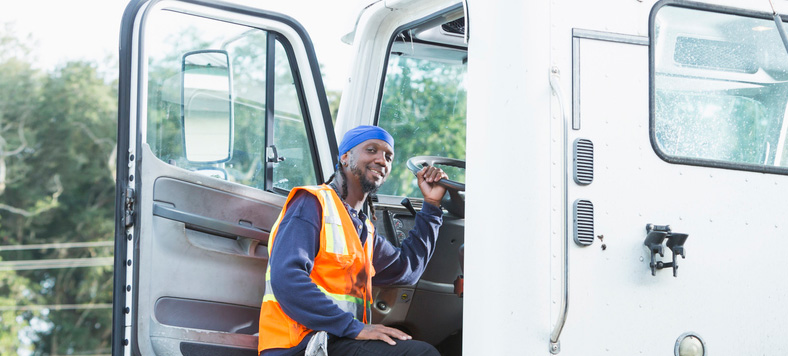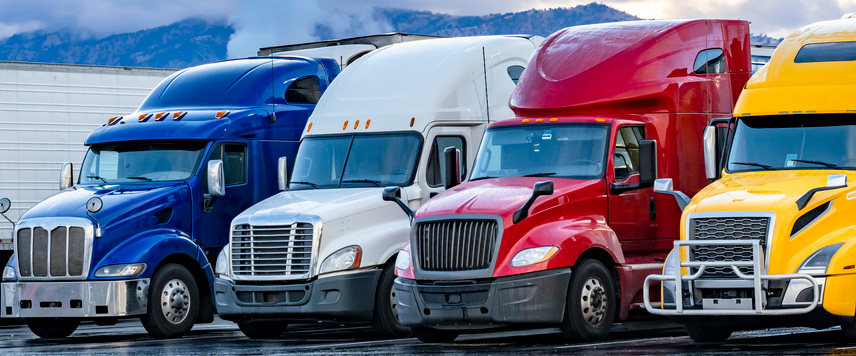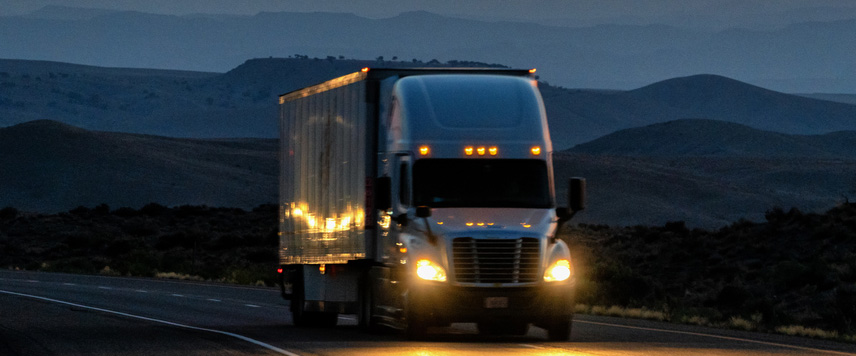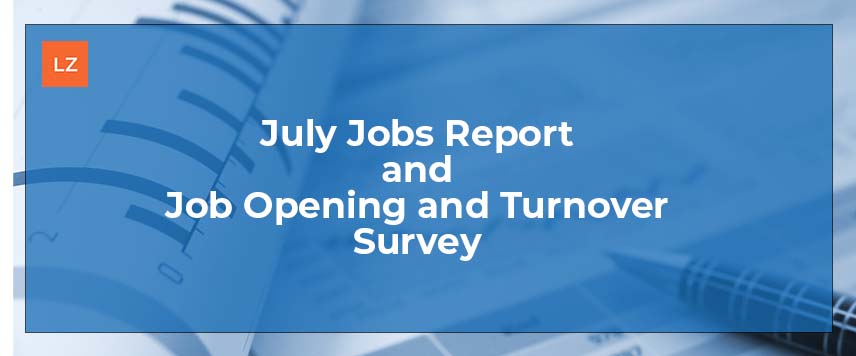Every truck driver knows that towing a semi-truck to a shop or away from the scene of an accident can cost an extraordinary, and debilitating, amount of money. However, in recent years, those costs have soared to the point that the federal government has felt forced to step in and bring light to the issue that the trucking industry calls “predatory towing.” As Transportation Secretary Pete Buttigieg noted in the summer of this year, “…some companies have seen an opportunity to charge exorbitant fees into the tens of thousands of dollars before returning a vehicle back to the truck driver. That isn’t right. It isn’t fair.” A predatory tower can cause a great deal of stress and anxiety for truckers who can’t afford to spring their vehicles from tow lots right away, forcing them to lose their sole mode of income. Today, the LZ Blog is here to let people know what predatory towing is and how to protect companies and individual drivers from this practice.
What is predatory towing?
There are several forms of predatory towing, with the most common being that of predatory billing. In November 2023, the American Transportation Research Institute released a study that showed towing companies overcharging truckers and their carriers for emergency tows, with one invoice in Virginia coming in at over $200,000. The ATRI’s research found that 83% of carriers have experienced excessive towing rates in some emergency situations, while 82% reported having unwarranted or unnecessary charges, some of which were never explained. According to Transportation.gov, “Towing can occur at the request of trucker after a breakdown, or at the request of law enforcement or a property owner if the vehicle has been parked illegally...” or has been in an accident. Most towing comes at a set price for a set distance; however, in the case of accidents or breakdowns, towing companies have started adding exorbitant junk fees in order to cover a range of costs. These costs have been found listed as everything from “special equipment” fees to “late night towing” fees, and a sundry of other items. None of these can be controlled or disputed by the truck driver, and this can lead to the driver losing thousands of dollars or tow companies with as many unpaid bills.
However, there are other types of predatory towing practices. The ATA’s list includes “improper vehicle seizure, vehicle access or release issues, and withheld cargo,” while the FMCSA, Federal Motor Carrier Safety Administration, includes "hiding fees until the tow is completed, charging for unnecessary or worthless services, and imposing an excessive number of fees for excess amounts.” While the wording may be slightly different for each administration or association, it is important to realize that the towing issues for truck drivers and trucking carriers are the same, and, at least in this instance, the drivers and their companies are on the same side.
The American Trucking Association says that “Predatory towing companies that hold equipment and cargo hostage with inflated, excessive, and fraudulent invoices tarnish the reputation of the entire towing sector.” On the other side of that, though, many towers are quick to point out that they need many different pieces of equipment to tow heavy duty trucks. They also note that accidents involving semi-trucks happen at all hours of the day and night, and, therefore, towers cannot control when they have to leave their homes and their families to deal with a truck that needs to be towed. One of the administrators for the Towing and Recovery Association of Ohio stated that “Yes, we do have bad apples, but very few compared to the good guys that are out there in the industry. Lots of times our guys are stuck with not getting paid.”
With truck drivers and tow companies going head to head every day in the field, each one is still faced with the difficult task of having to deal with these exorbitant charges. So, how can trucking companies protect themselves from facing a towing company that is trying to make the most of an accident or emergency situation?
Trying to Get Back “On the Road Again”?
While the federal government tries to maneuver through the minefield of predatory towing, some states and trucking associations have jumped out ahead and gotten together to pass their own towing laws. The ATA’s President and CEO, Chris Spears, stated that “ATA’s federation of state associations is prepared to fight back against unscrupulous companies that target our industry by injecting more accountability and fairness in state and local laws pertaining to towing.”
Lionzone’s home state of Tennessee took one of the largest leaps forward this year to combat predatory towing. Memphis, Tennessee, which has been known as a “hotspot for illegal towing,” has seen such horrific towing practices that the state legislature felt compelled to pass one of the first bills to address tower abuses. According to Trucking.org, “more than 90% of Tennessee communities rely exclusively on trucks to receive their goods” and the industry employs “nearly 250,000 Tennesseans.” So, after one truck driver tried to refute a $275 booting fee and another driver was forced to wait with his truck for 33 hours to keep it from being towed while he attempted to pay for parking, the Tennessee state legislature passed the Modernization of Towing, Immobilization and Oversight Normalization Act, or MOTION for short, which now caps booting fees at $75 for trucks booted on public property. The law also makes it illegal to boot a vehicle that is identified with a commercial USDOT number. If a vehicle is towed, the TN law also now requires that the owner be properly notified to come and get it.
Not wanting to be left out, the federal government has also tried to step in and take care of the excessive fees levied by predatory towers. The FMCSA has started backing the FTC’s, or Federal Trade Commission’s, proposed rule to ban all junk fees. Many consumers believe that, by banning junk fees, they will be able to save money on things like concert and airline tickets. According to the FMCSA, though, doing away excessive junk fees will also target towers that make unnecessary charges to truck drivers. By getting rid of the fees and treating the levying of junk fees as a violation, the FMCSA and the Biden Administration hope to help keep truck drivers from having to pay to pick up their trucks from tow lots or from having to stay with their trucks to keep them from being unnecessarily towed.
There are steps that truck drivers can take to protect themselves from predatory towers. TruckingDive.com recommends that drivers who get into accidents take photos and videos as quickly as possible, once the safety of the driver and the surrounding cars are secured. By doing this, truckers become a key witness and can take note of when tow truck drivers show up and the steps they take to load a truck up to take to a mechanic. The experts at TruckingDive.com also recommend that truck drivers reach out to local towing associations if they do get into an accident. A local association can recommend the best emergency towers, but they can also warn drivers about predatory ones, something they do to protect themselves as well as others. Something else they beg drivers to remember is that many states require police officers from Highway Patrol or State police to use the towers requested by the driver. Therefore, if the driver has a towing company that they prefer, it is important to keep that information on hand!
Conclusion
Transportation Secretary Buttigieg correctly stated that “When a truck driver’s vehicle is towed, they can’t earn a living until they get it back – leaving them vulnerable…” It is extremely important for drivers to be able to get their truck out of harm’s away and to a mechanic to get it back on the road as quickly as possible. In order to do that, legislators, trucking companies, trucking associations, and towers have to come together to decide how to move away from predatory towing practices. With the new laws and regulations coming from state and federal officials, it will be interesting to see how things progress in the coming years.
__________________________________________________________________________
Meaghan Goldberg covers recruitment and digital marketing for Lionzone. A Patterson, GA native, after graduating from both Valdosta State University and Middle Tennessee State University, Meaghan joined Lionzone in 2018 as a digital recruitment strategist before becoming the social media manager.
Resources:




